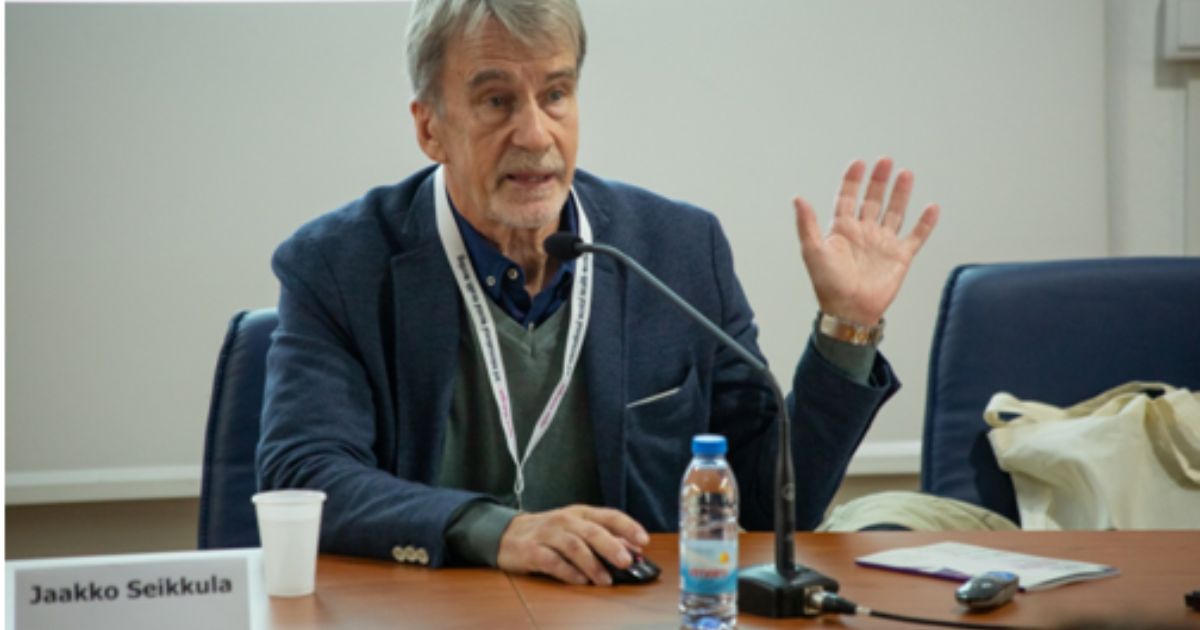Unveiling the Dialogue-Based Approach: Challenging Conventional Perspectives
Jaakko Seikkula’s book, “Dialogue Improves—but Why?” is a breakthrough work that questions the common representation of severe mental health problems as mere diseases.
The book is the sum of Jaakko Seikkula’s knowledge and opinions on why society must reconsider its attitudes towards psychological suffering.
In the process of discussing Jaakko Seikkula’s emphasis, an astounding realization emerges.
It explores that severe mental health problems could be seen not as pathological conditions but as active responses by human mind to insurmountable tension.
The book claims that psychological behavior is not pathology but adaptation to life’s most unbearable trials.
Psychosis: An Adaptive Response, not a Pathological State
Jaakko Seikkula does not consider psychosis as a mental disorder, contrary to popular belief.
Instead, he locates psychotic behavior in the realm of the mind actively attempting to protect itself under highly stressful situations.
Consequently, Jaakko Seikkula refuses psychiatric illness notions, stating that psychotic behavior might be a crucial defense mechanism when overwhelmed by stressors.
The crux of this paradigm shift lies in viewing a person’s experiences not as an illness but merely valiant efforts to function under extreme pressure. Thus, it dramatically alters the conversation around severe mental health issues.
Redefining Delusion and Truth: A Philosophical Conundrum
The distinction between delusion and truth remains intricate. In modern psychiatry, psychotic symptoms are defined as beliefs or sensations experienced as real by an individual but not accepted by society.
However, Jaakko Seikkula transcends this idea. He claims that even those prevailing psychiatric concepts themselves may be considered delusions thereby raising questions concerning truth in mental health discourse.
Dialogical Practice by Jaakko Seikkula: Embracing Personal Narratives
Seikkula’s dialogical practice entails acknowledging people who show psychotic symptoms’ narratives instead of dismissing them as delusions while trying to express intense emotions.
These experiences which are too difficult to verbalize due to their emotional intensity are considered to be significant and genuine.
Trigger for such experiences might have its roots in present moments that mirror past traumatic events.
Jaakko Seikkula emphasizes that hallucinations normally symbolize real-life situations which evoke intense emotions associated with old trauma.
Importantly, these experiences provide an opportunity for individuals to face their traumatic past and put it into words for the first time, thus promoting self-understanding and consolidation of experiences.
Redefining Treatment: Respecting and Listening to Patients
On another hand, traditional psychiatric practices lack this form of respect and understanding instead focusing more on degree of illness.
Central to this is the challenge of those symptoms being made as a disorder which signifies the experience of a person’s life so as to empower self-management and integration of experiences.
Embracing Change: A Shift in Mental Health Practices
Seikkula’s approach holds wide-ranging consequences. It interrogates established norms about mental health treatment indicating the need for fundamental change in perception as well as approach towards mental health issues.
Pathologizing symptomatology should be done away with by concentrating on understanding, respecting, validating individual experiences.
In conclusion, Jaakko Seikkula’s groundbreaking insights underscore the importance of humanizing mental health practices.
Redefining psychosis, truth and treatment approaches therefore represents a paradigm shift that presents an avenue for changing lives of people undergoing severe mental health problems.
The Way Forward: A Paradigm Shift in Mental Health Care
Perhaps Jaakko Seikkula’s radical perspective is an innovative way to challenge the status quo in mental health care.
The rethinking of psychosis, honoring narratives, and embracing experiences have made a great difference in our knowledge and management of severe mental health conditions.
This shift from conventional psychiatric models implies that there is hope for an empathic, empowering, and humanistic mental healthcare system.


























